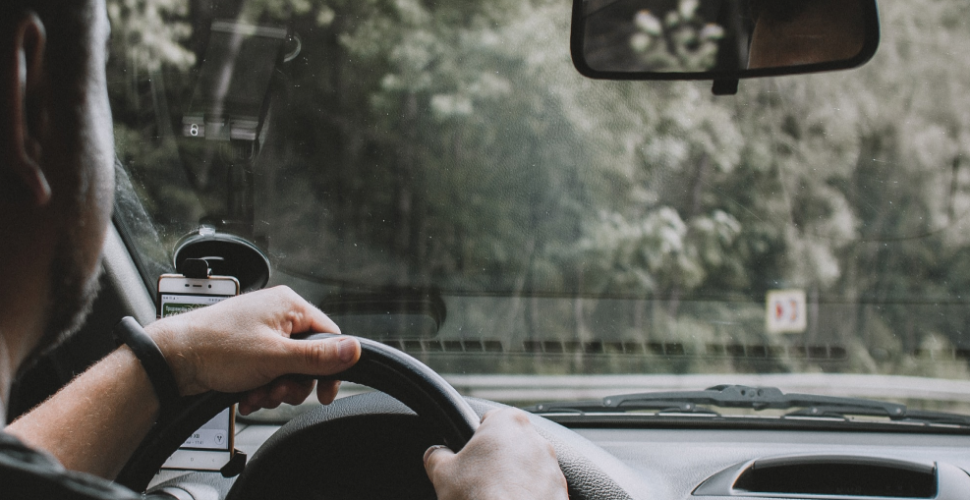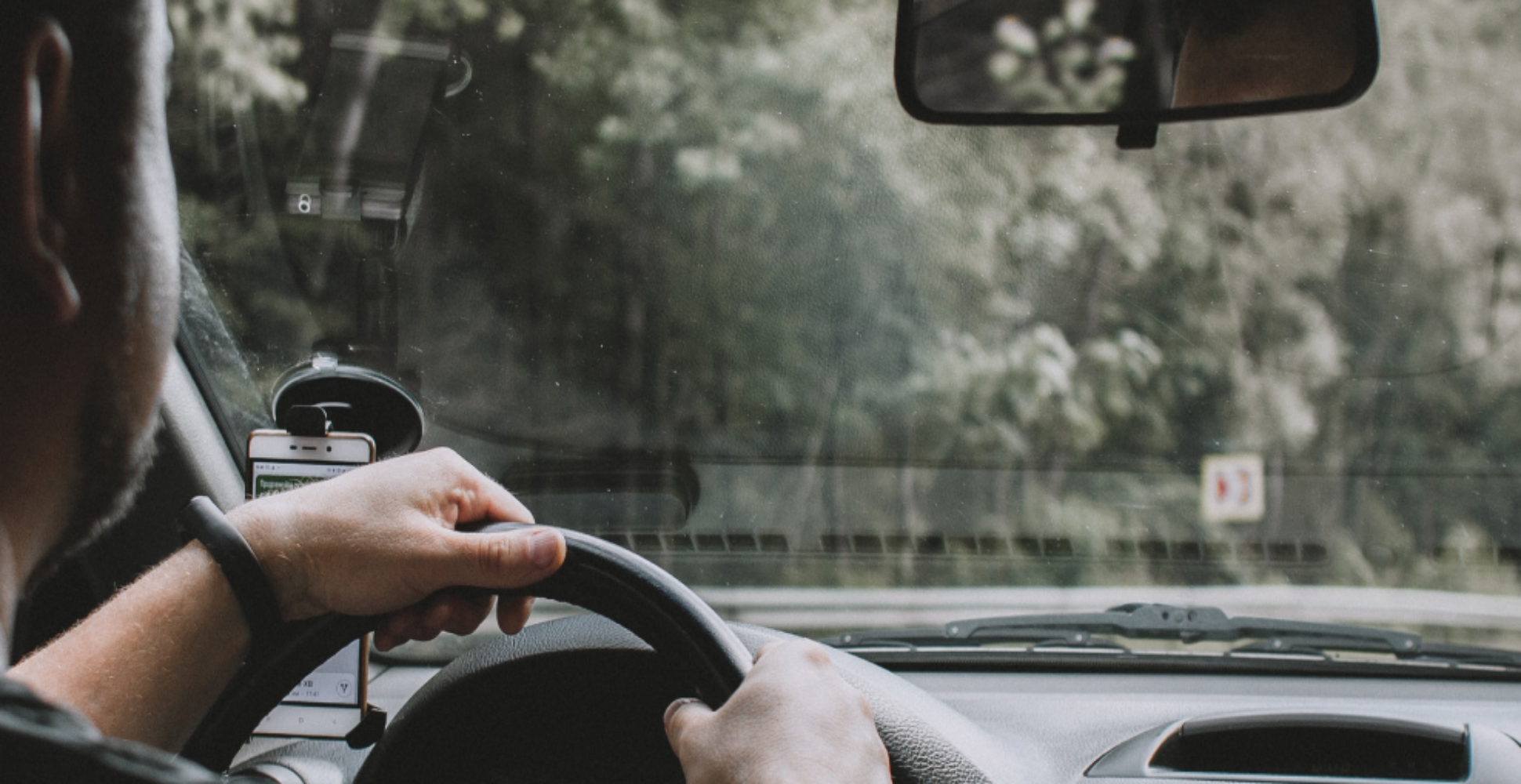Motor Vehicle Accidents
Common Causes of Distracted Driving & How To Avoid It


Distracted driving is one of the top reasons that car accidents occur in Australia. In this article, we will cover common causes of distracted driving, as well as simple techniques to avoid it and maintain road safety. This information can be lifesaving, as some crashes that are caused by a driver who isn’t paying attention to their surroundings are fatal.
By the end of this guide, you’ll have learned:
- What classifies as distracted driving
- The most common driver distractions
- How many accidents are caused by distracted driving
- How to avoid being distracted while driving
- How to recognize a distracted driver in another vehicle
- What to do if the passengers in your vehicle are distracting you
What is distracted driving?
Distracted driving happens when the driver of a vehicle isn’t keeping their full attention on the road and the traffic around them. There is something in their environment that is occupying their thoughts and taking their concentration away from the task at hand, which is driving safely.
Thus, their reaction time is slowed and they may become unable to react appropriately to cars stopping in front of them, traffic lights changing, and even the poor decisions of other drivers who are just as equally distracted.
What are the most common driver distractions?
The most common driver distractions fall into one of three categories: visual, manual, and cognitive.
- Visual distractions
- Taking your eyes off the road to check your phone, GPS, or entertainment screen. (If you’re already guilty of this, you’re far from being alone; the Transport Accident Commission in Victoria reports that a full third of drivers admit to using their phone illegally while driving.)
- Trying to view an accident or upcoming hazard
- Looking at the scenery or objects on the sides of the road, like billboards
- Manual distractions
- Texting or placing a call to someone on your mobile phone
- Eating and drinking
- Operating the entertainment system (i.e., turning the volume up or down, changing songs, etc.)
- Utilising a GPS (i.e., checking your progress, updating your destination, etc.)
- Cognitive distractions
- Daydreaming or worrying
- Talking or listening to passengers in the car with you
You may think that you’re skilled enough at multitasking or that these distractions take so little time to complete, that you can continue to do them without having to worry about crashing. But, per the Transport Accident Commission (TAC) in Victoria, taking your attention away from the road for just a couple of seconds increases the risk of crashing two times.
And, as we mentioned in the introduction to this article, such accidents can have serious consequences.
How many accidents are caused by distracted driving?
The most serious consequence of a distracted driving accident is the death of one or more drivers and/or their passengers. According to Forbes, approximately 3,000 deaths are caused by distracted driving every year in the United States. That accounts for between 8%-9% of all fatal motor vehicle accidents in that country.
The Australian Automobile Association states that distraction is the main contributing factor in approximately 16% of serious casualty road crashes, highlighting the seriousness of distracted driving in contributing to car accidents in Australia.
How do you avoid being distracted while driving?
The last thing you want to do is become a distracted driver statistic. But we also recognize that we have more distractions today than ever before in history, and it’s harder than ever to turn them all off.
To help you avoid modern-day distractions while operating a vehicle, here are four ways to manage driver distractions:
- Answer text messages and phone calls later. Remember that using your mobile phone while driving is not worth getting into a potentially fatal accident over. If you feel you must answer one right away, use hand-free technology or pull over and park in a safe spot, like a gas station or a rest stop.
- Avoid fiddling with your entertainment system, GPS, or mobile device while driving. If you have a passenger with you, put them on entertainment and navigation duty. If you’re alone, start a playlist and set all the stops on your journey before you start out, so that you don’t have to change anything (you may even consider turning off the music altogether).
- Avoid eating and drinking while driving. If you get hungry, pull over to a rest stop or another safe area off the road to satisfy your appetite.
- Keep your eyes on the road. While you’re driving is not the time to take in scenery or gawk at someone else’s accident. If you do, you might end up having an accident yourself!
How can you recognise a distracted driver?
If you have already adopted good habits to reduce your distractions while you’re driving, you should still be concerned about distracted drivers. The ones you need to look out for are those driving behind, alongside, or ahead of you.
If another driver is distracted, you may notice signs like:
- Swerving from side to side.
- Drifting into another lane or off the road.
- Not slowing down for intersections, vehicles pulling out into the road in front of them, or pedestrians.
- Operating their phone or the entertainment/navigation system in their vehicle.
- Turning their head to stare at their surroundings and not looking where they are going.
The best thing to do if you detect a distracted driver is to get as far ahead of them as you can (without speeding), either by going around them or by turning onto a different street. Don’t wait behind them or next to them, just so they can hit you or someone else and get you involved in a crash.
What can you do if your passengers are distracting you?
There is one type of distraction we haven’t discussed, and that is the passengers in your car – especially if they’re children. Children don’t just talk; they also sing and cry. Even adults can get to chatting or horseplaying around, and in doing so pull the driver’s attention away from the road ahead.
When driving with other people in the car, establish early on in the journey that you need peace and quiet. If you have little ones, keep them occupied with small toys, books, games, or movies on a mobile device. Meanwhile, your adult passengers can keep themselves entertained on their phones or tablets.
Make a motor vehicle accident claim today
If you have been involved in a car accident as a result of driver distractions, LHD Lawyers can help you make a motor vehicle accident claim and receive the benefits they’re entitled to. We are so sure of our abilities to win your case that we stand firmly by our No Win No Fee Policy: if we don’t win, you don’t pay. Call 1800 455 725 for a no-obligation consultation about your case.
Author: James Bodel

Check if you’re eligible or get free claim advice now



